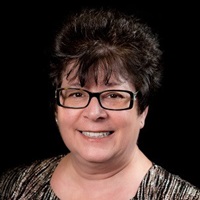Date Published April 18, 2023 - Last Updated February 20, 2024
Each month, we ask HDI thought leaders and featured contributors to weigh in on questions that matter to the IT service and support industries. Then we share their thoughts with you.
Here is this month’s question:
It's been chronically difficult to find the staff to fill vacancies in IT service and support, and even harder to find strong candidates who will slot in seamlessly within your organization. In your experience, what interview question or skills assessment has been invaluable for finding the strongest candidates?

David Stewart, Owner, Opimise
To me, it’s not so much in the questions and answers as in the candidate’s profile and how they come across in the interview. That’s because personality and good general life skills are important for good IT support.
For an entry level position in IT on the service desk, I would say the keys are an interest in IT, ideally with the relevant academic background, and certainly good written skills for knowledge management work.
As to questions, proof of good written skills might be incorporated with a quick written test designed to demonstrate logical thinking or basic IT troubleshooting skills. A good general question for any position is, “What did you not like doing in your last job, and why?”
For technical positions that require current capability rather than up-front training for the role, don’t rely on a resume. Dig into the candidate’s knowledge to make sure the capability is there. Also question the candidate’s approach to managing their ticket workload because while it can be taught and nurtured, it is a key skill and mindset for any IT support person.

Patrycja Sobera, Global Vice President, Digital Solutions Workplace Delivery, Unisys
For me personally, the key focus during the interview stage is on the candidate themselves - what drives them to change, what their persona is like, whether they will resonate with our core vision and mission, and whether they are passionate about the value and outcomes we want to drive.
I love asking the candidate to present something - usually we’re talking no more than a 10-to-15 minute presentation on their vision of what world-class service looks like and how will they structure their first 30/60/90 days to achieve that vision.
It then gives me insights to ask more pertinent questions. One I ask is, “You’re successful, you just started your day, had your first cup of coffee - what do you do? How will your day be structured?” This, for me, has the power of telling apart those who are serious about succeeding vs those who just want to come across well in the interview stage, but haven’t thought about anything beyond.

Phyllis Drucker, Author and Speaker
Culture and the candidate’s ability to fit into the organization are two of the most critical aspects of finding the right people. If the right people are selected, there’s a higher likelihood they will stay and grow within the organization, lowering the need to find new people continually. Internal growth programs are also important, as they enable the organization to find entry-level personnel and position them for growth, lessening the chronic difficulty across technical and application teams.
When hiring for entry-level positions within an organization, it’s good to remember that if you have someone with great customer service skills and good basic knowledge with a strong desire to learn, you can grow them into a valuable player within the organization.
Questions to help do this include:
- Tell me about a situation where you had a difficult employee or customer and how you handled it?
- Tell me about your best customer? Worst customer?
- What training have you attended in the last year?
- What would you like to be trained in?
- What do you do when you have a problem or technical situation you don’t know how to address or don’t have the technical background needed to resolve it?

Donald Chew, Supervisor, Help Desk, Mayo Clinic
Historically, for our Help Desk, it has not been difficult to find people to fill open positions that we have. On the other hand, we also have not been able to increase our base staffing levels—rather, we have just been back-filling when a team member leaves.
The primary thing that I keep in mind is that, for me, the ideal candidate has “an interest in technology and a passion for service”. I know that there are some organizations that include activities during interviews other than asking questions to help assess skill levels. Some of these activities include written “exams”, role playing, and physical hands-on scenarios with hardware.
Since our Help Desk is 100% remote and 100% phone support, our questions focus on some of the soft skills that I also talked about in last month’s Thought Leader Question of the Month, which included listening, empathizing, verbal and written communication, translation, and critical thinking/decision making.
We conduct panel interviews and include our frontline agents to help gauge their skill levels and also to get to know the person to ensure that they are a good “fit” for the team. Our Help Desk team works very closely with each other, and being 100% remote makes this even more key.
In addition to the traditional interview questions, here are just some of our favorites that we have used in our interviews:
Why did you choose a career in the IT Support industry? Specifically, why the Help Desk/Service Desk?
A good ice-breaker question sets the tone, helps them re-focus on why they are here, and gives us background on their career focus.
What motivates you to come to work every day?
Shows what is important to them about working, in general, but often leads to things that they enjoy about their jobs and maybe insight on what they are looking for in a job.
What are your technical strengths and weaknesses and what have you done in the past year to help maintain and/or improve your technical skills?
This can show self-awareness, drive to improve, motivation and engagement.
What accomplishment are you most proud of while working in your current/most recent position and why?
Do they set goals for themselves? Have they been recognized for something good? Do they take pride in their work?
Tell us about something you have led. For example, a group, a team, a project, an initiative or any situation where you were in the lead?
Here, we are looking for leadership ability and organization skills. Do others see them as a leader?
Please describe the steps on how you would make a peanut butter and jelly sandwich.
How well/detailed can they describe a simple task that most people know without sounding condescending or with the “don’t you already know this” tone.
What do you enjoy doing in your spare time?
This is just a general deeper dive to get to know them better.
Let's say you're 1 of 2 final candidates for the position. Why should we select you over someone else?
This allows the candidate to really sell themselves and share anything that they feel is important that was not covered in any of the interview questions. In other words, “Why you?”